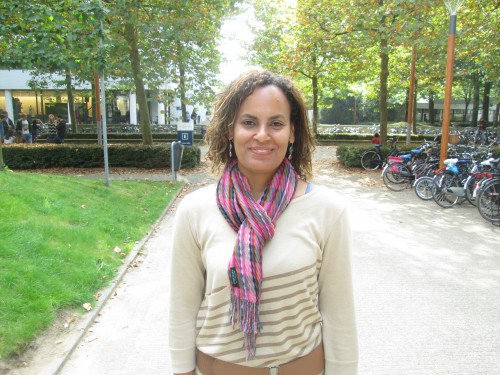Homeless international students in Tilburg: a look back
Studying abroad is an adventurous experience. But this year, many newly arrived international students got a lot more adventure than they bargained for. Univers looks back at the housing shortage that forced international students to couch surf, stay at hotels, and even sleep in cars.
This year, Tilburg University accepted a record number of new international bachelor students, driving up the demand for rooms. With a dramatic shortage of student accommodations, fully booked hotels and no hostels in Tilburg, many newly arrived internationals had nowhere to go. They created a Facebook page called Homeless students at Tilburg to support each other and create awareness about their situation.
The page grew to over a hundred members overnight, and local newspaper Brabants Dagblad quickly picked up on it. The newspaper reported on the situation in a lengthy article, which featured a rather shocking photograph of a homeless student wrapped in a sleeping bag, lying in the back of a car.
Help from university
Many wandering international students felt abandoned by the university. “When the university became aware of the problem, the International Office made computers available for students during walk-in-hours, so that they could look for a room online”, says Levent Acar (22), who was homeless for several weeks. He stayed with a friend in Nijmegen and later with a newly-made friend in Tilburg, before finding his own room through a local housing agency. Having a computer at his disposal for a few hours didn’t bring Levent any closer to finding a place to stay. “I had my own laptop, so that wasn’t very helpful”, he explains. “I don’t think it’s the university’s responsibility to find housing for international students, but they could’ve helped more. In the end, that also benefits the university.”
When classes started on September 1st, there were still 71 students registered as homeless with the International Office. As an emergency measure, the university made rooms available at the Bastion Hotel. Homeless internationals were offered to share a double room with a same-sex student up until October 1st, for 400 euros per person. The university paid the rest of the costs, and would help students find a permanent place to stay.

Elisangela Rosario (38) was homeless for weeks
Elisangela Rosario (38) from Brazil thinks this was an adequate solution. Still, she thinks the university could have handled the housing problem better. “The university was reactive, not proactive. I think the university should have a better plan and make it very clear to incoming international students that it’s difficult to find housing”, she says. “I also think a more personal approach would have been better. I only had contact with the International Office through email and by phone. I was running out of money and I didn’t know where to go or what to do, so I was really terrified. In that moment, it would have been nice to have face-to-face contact with the people who were trying to help us find a solution.”
“Dutch only”
Elisangela spent countless hours searching for accommodation. “Sometimes I’d spend eight hours a day searching, applying, sending emails. But I kept getting the same response: ‘no’. That was really frustrating.” She was especially taken aback by the overwhelming amount of “Dutch only” advertisements, which explicitly state that only Dutch students are invited to respond. “That’s something that really concerned me”, she says. “For me, it wasn’t just about the rooms themselves, but about the concept behind it. I came to the Netherlands because it’s an open-minded, tolerant place. To see that Dutch students and landlords exclude people from other countries, made me really uncomfortable.”
“Sometimes I’d spend eight hours a day searching for rooms, but I kept getting the same response: no”
Eventually, Elisangela found a place through real estate agency De Huissleutel. It’s slightly over her budget, but she’s happy she found something. Still, it was quite a struggle. Sometimes Elisangela felt like she was caught in a vicious circle, she says. “Most housing agencies require you to pay subscription costs before you can go on viewings and apply for houses. But in order to pay the subscription costs you need a Dutch bank account, and in turn, you need an address to open a bank account. Some agencies are more flexible than others, but still, I think that was a problem for a lot of international students in my position.”
Crisis resolved?
Now that the housing crisis for newly arrived internationals has largely been resolved, Elisangela doesn’t want to dwell on the past. Instead, she says we should look to the future. “I think the important thing is that we learn from this experience. The university and the international community should work together and look for ways to do things better next year. I’d like to help with that”, she says. “I hope that I can become part of the solution rather than the problem.”







